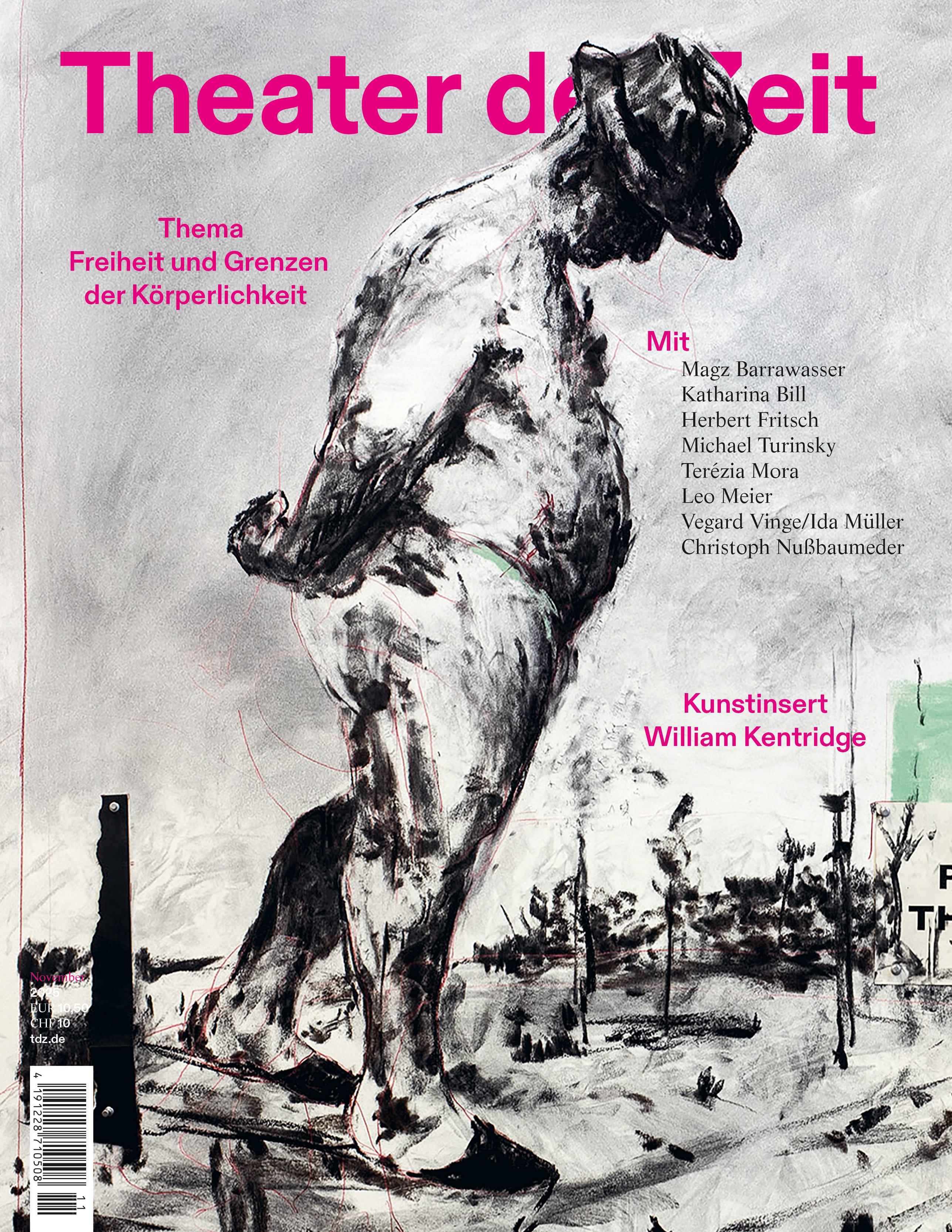Externalization On Stage
The Exil Ensemble’s Hamletmaschine
von Katrin Trüstedt
Erschienen in: Recherchen 155: TogetherText – Prozessual erzeugte Texte im Gegenwartstheater (12/2020)
In the summer of 2018, the Berlin Maxim Gorki Theater’s Exil Ensemble premiered Heiner Müller’s Hamletmaschine. The performance confronts Müller’s text from 1977, already a collage of various text fragments, with texts from Syrian artist Ayham Majid Agha, including references to the Arab spring, the current situation of refugees in Germany, and a “blood line from Damascus to Berlin”. Something about this confrontation strikes me as interesting, and makes me uncomfortable at the same time. When the audience watches this confrontation from a comfortable distance, it seems that there is a tendency to delegate these issues to institutions like the Gorki Theater.
If art can generally give certain subjective or social realities an external existence, as the psychoanalytic tradition has suggested,1 the theater can provide a spatial arrangement, an architectural reality for such an externalization, where realities are, so to speak, removed from the auditorium and are put instead on a separate stage, where they can be watched from a certain distance. In the case of this performance and this space provided by the Gorki Theater, the presentation highlights the problematic aspect of such an arrangement. It is this complex dynamic of externalization that I want to trace...

.jpeg&w=3840&q=75)















